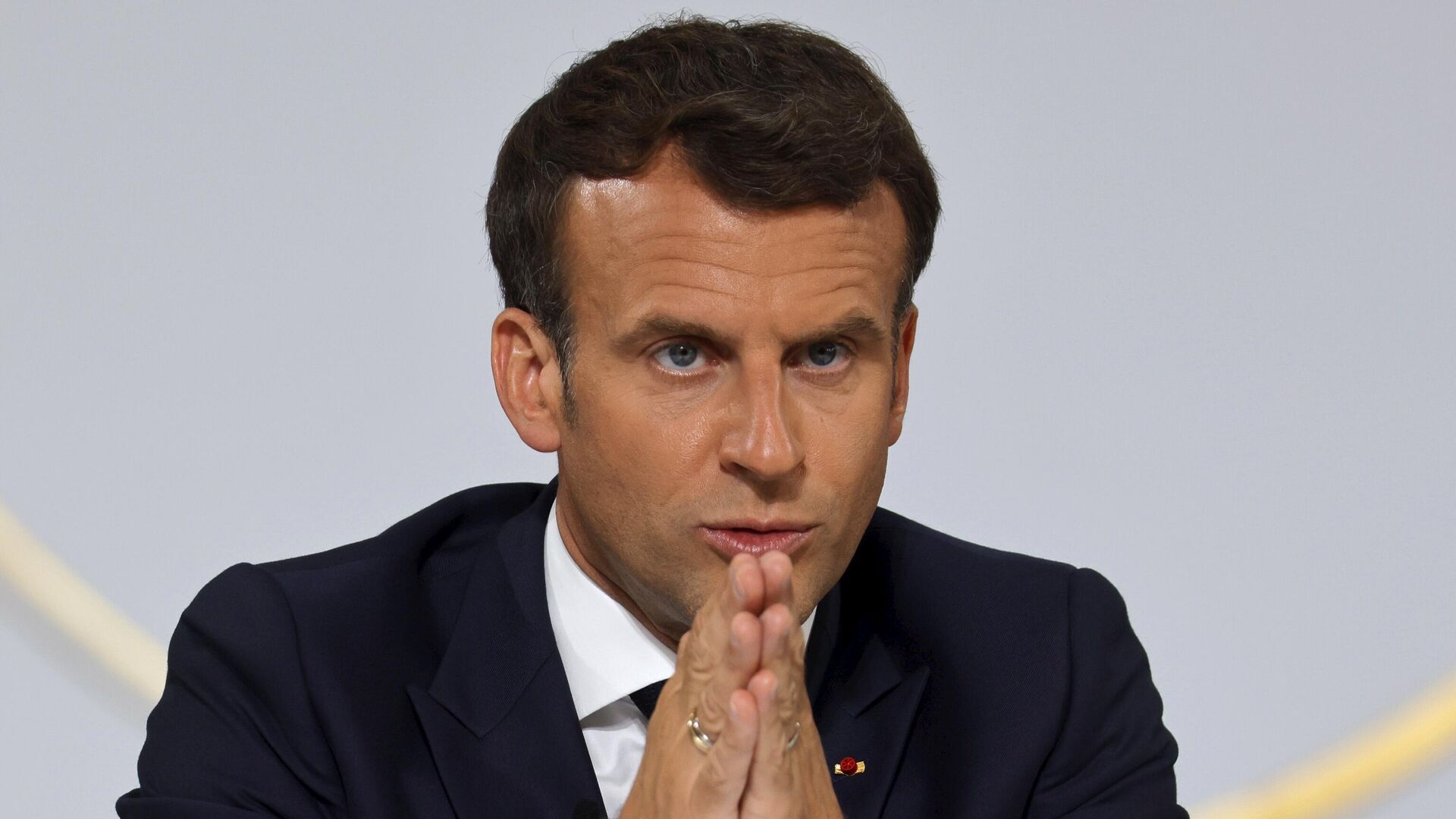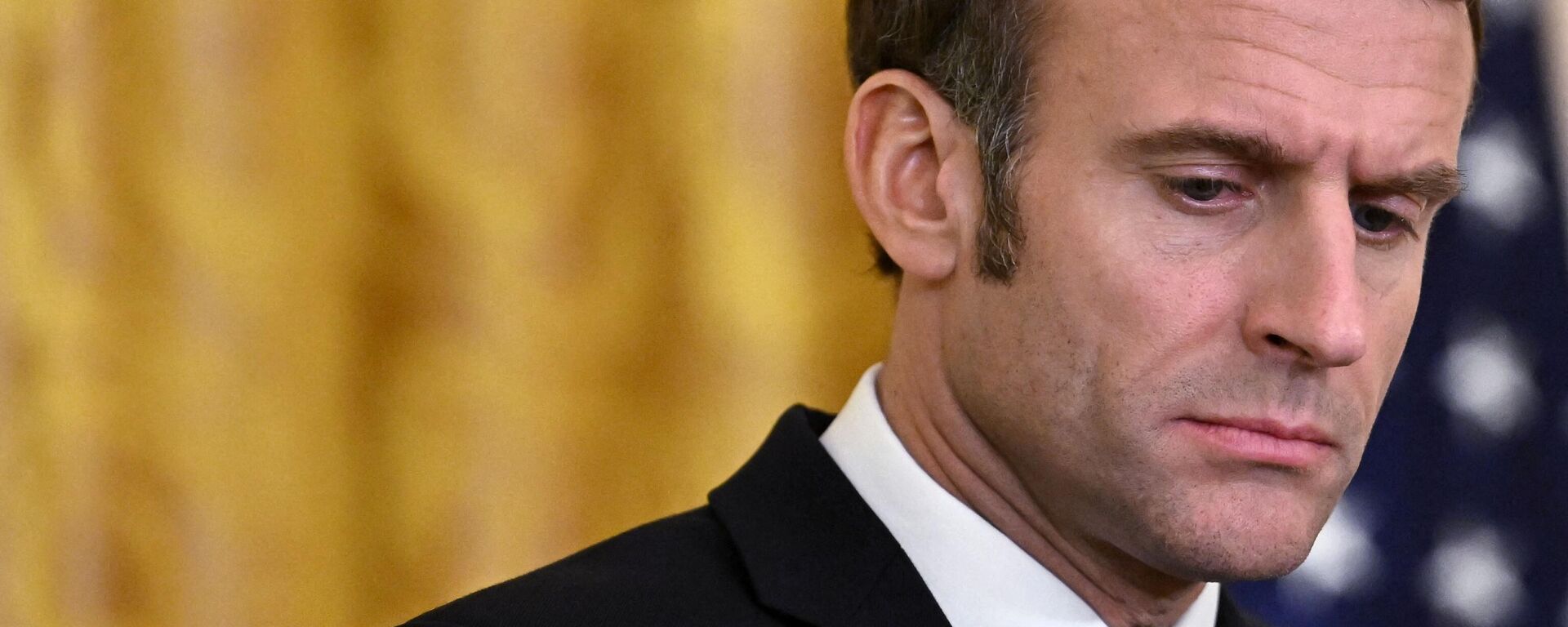French Politics Won’t Get Less Complicated After Election

© AP Photo / Pascal Rossignol
Subscribe
Immediately after his party was trounced by the National Rally in European parliamentary elections, French President Emmanuel Macron called for snap elections for the National Assembly to be held on June 30 and July 7.
Macron was likely hoping that the higher turnout for National Assembly elections and long-held French fear of a party run by the daughter of Jean-Marie Le Pen (Marine Le Pen) would mobilize voters into supporting centrist parties to stop them. Recent polling indicates that is not likely to happen, at least not by choosing Macron’s Renaissance Party.
No matter the outcome next month, we are unlikely to see an end to the drama in French politics, particularly if the National Rally does not secure a clear majority or if it cannot find allies to create one.
“It’s unlikely any one political grouping will be able to get 51% of the vote and therefore, be able to form any kind of stable government,” explained George Szamuely, a senior research fellow at the Global Policy Institute on the Sputnik's Fault Lines. If the National Rally secures a plurality but not a majority, Macron will not be obligated to pick likely National Rally candidate Jordan Bardella.
“He might, but he might say ‘Well, I’m not at all sure that Jordan Bardella will be able to form a government that will be able to govern,’” explained Szamuely. “So he might turn his attention to maybe some form of coalition between the parties of the left, maybe the center-right and [Macron’s] the Renaissance Party. It’s hard to know… So, at this stage, there are a lot of different scenarios that could play out.”
Further complicating matters for Macron is a new coalition of leftist parties, named the New Popular Front, that includes the Communists, Socialists, Greens and France Unbowed (LFI). That group has rocketed past Macron’s center-right coalition and is now seen as the National Rally’s biggest threat.
While Macron has been and will likely continue to court the left to keep the National Rally out of power, they seem unlikely to join him due to Macron’s conservative immigration reform, his decision to raise the retirement age in France and spending cuts. Fearing a complete defeat at the hands of both the New Popular Front and the National Rally, Macron’s allies have also started attacking the left in France in hopes of maintaining some of their power.
Currently, the National Rally leads national polling in France with 31%. The New Popular Front is a strong second with 28% and Macron’s alliance remains below 20%. That means it is unlikely that his party will make it to the second round in most districts.
National Assembly elections in France work on a run-off system. The first vote includes all valid candidates, the second includes any candidate that received more than 12.5% of the vote. Typically that results in two candidates but elections with three or four candidates in the second round are not unheard of.
If a candidate wins 50% in the first vote and more than a quarter of registered voters in the area participate then that candidate wins automatically.
His voters would then have to choose between the leftist coalition candidate and the National Rally, and could make the crucial difference.
Though his party looks likely to suffer massive losses, Macron has pledged to finish his term, which ends in 2027. If that happens, France will be stuck with a lame-duck president, ruling in what is called “cohabitation” with the Prime Minister from either the New Popular Front or the National Rally. France hasn’t had a cohabitation government since 2002 and this one looks to be far more contentious than any previous iteration.
That is the best case scenario for stability in the French Government. Current polling indicates that it is more likely that neither the National Rally nor the New Popular Front will gain enough seats for a true majority and France could be stuck in a limbo, unable to field a government that can actually govern.
“There's still such an anathema about having the National Rally in government that it could be that all the parties will unite against the National Rally and immediately hold a vote of no-confidence, in which case that will be the end of that government,” explained Szamuely.
Worse, Bardella has already indicated that he won’t accept the post of Prime Minister if the National Rally does not secure a majority.
“I don’t want to be the President’s assistant,” Bardella explained. “I’m not going to sell the French people measures or actions that I couldn’t follow through.”
French politics are complicated and often chaotic. It looks like it will stay that way.


